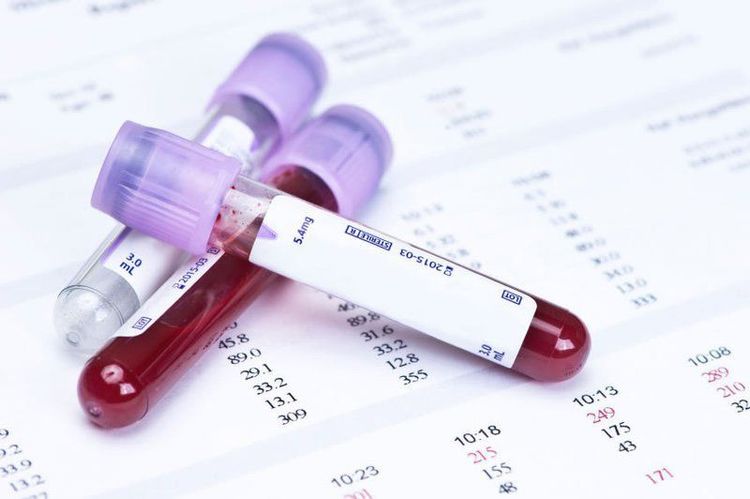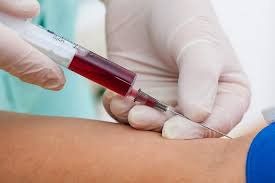Hypochloremia is when the body has low levels of chloride in the blood, causing an imbalance in electrolytes. This can lead to symptoms like tiredness, dehydration, and other issues, and can happen for different reasons.
1.What is hypochloremia?
Electrolytes are substances that help control important functions in the body, such as sodium, potassium, calcium, magnesium, and bicarbonate.
When these electrolytes dissolve in water, they break into charged particles (ions). Chloride is a negatively charged ion that works with other electrolytes like sodium and potassium to help maintain fluid balance and keep the body’s pH levels stable. The most common form of chloride people consume is table salt (sodium chloride).
Hypochloremia occurs when the level of chloride in the blood is lower than normal, causing an electrolyte imbalance. This can be found through a blood test measuring chloride levels. For adults, normal chloride levels range from 98–106 mEq/L. For children, normal levels may be slightly lower, between 90–110 mEq/L. If the test shows chloride levels below these ranges, the person is diagnosed with hypochloremia.
Hypochloremia can also be diagnosed by looking at the person's medical history or medications that might cause an electrolyte imbalance. However, a blood test is the most accurate way to confirm the condition.

2.Common symptoms of hypochloremia
Low chloride levels in the blood usually don’t cause specific symptoms, but some signs of an electrolyte imbalance may appear, including:
- Dehydration and symptoms related to it.
- Weakness, fatigue, and muscle pain.
- Dyspnea and feeling short of breath.
- Frequent diarrhea or vomiting due to dehydration.
- Low blood pressure.
- Fast heart rate.
Hypochloremia can also be linked to low sodium levels (hyponatremia)
3.What Causes Hypochloremia?
Chloride levels, like other electrolytes, are mostly controlled by the kidneys. So, most electrolyte imbalances are related to kidney function. Hypochloremia is no exception. Kidney problems, such as chronic kidney disease or urinary tract obstructions, can lead to loss of salts like sodium and chloride.
Additionally, hypochloremia can happen due to excessive use of laxatives, diuretics, nasal drainage, vomiting, or long-lasting diarrhea from problems in the small intestine. It can also result from fluid loss due to injuries, like burns.
When hypochloremia is caused by a medical condition, some possible causes include:
- Congestive heart failure.
- Chronic lung diseases, like emphysema.
- Metabolic alkalosis (when the blood’s pH is too high), which can also occur with chronic respiratory issues or cystic fibrosis.
- Cushing's syndrome.
- Malabsorption syndrome

4.How to treat hypochloremia?
Treatment for hypochloremia, like other electrolyte imbalances, depends on the person's overall health, the underlying cause, and the medications they are taking.
If hypochloremia is caused by medications, doctors may recommend stopping or adjusting the medication dosage as needed.
If low chloride is due to kidney problems or hormonal imbalances, the patient will be referred to a specialist for appropriate treatment.
In mild cases, lifestyle and dietary changes can help improve chloride levels. Some helpful tips include:
- Increase daily intake of sodium chloride (salt).
- Manage underlying health conditions well, especially heart disease, kidney disease, liver disease, and diabetes.
- Drink plenty of water each day.
- Limit caffeine and alcohol, as they can cause dehydration.
In general, hypochloremia occurs when chloride levels in the body are too low. This can result from vomiting, certain diseases, or medication use. In mild cases, doctors may add chloride to the patient’s treatment. For more severe cases, stronger treatments may be required.
Vinmec International General Hospital is known for its high-quality medical care, experienced doctors, and modern equipment. It provides comprehensive healthcare services in a safe and sterile environment, ensuring accurate test results.
Patients can visit any Vinmec hospital nationwide for treatment or contact the hotline for assistance.
Please dial HOTLINE for more information or register for an appointment HERE. Download MyVinmec app to make appointments faster and to manage your bookings easily.
Reference source: healthline.com; chemocare.com; medindia.net
To arrange an appointment, please call HOTLINE or make your reservation directly HERE. You may also download the MyVinmec app to schedule appointments faster and manage your reservations more conveniently.








